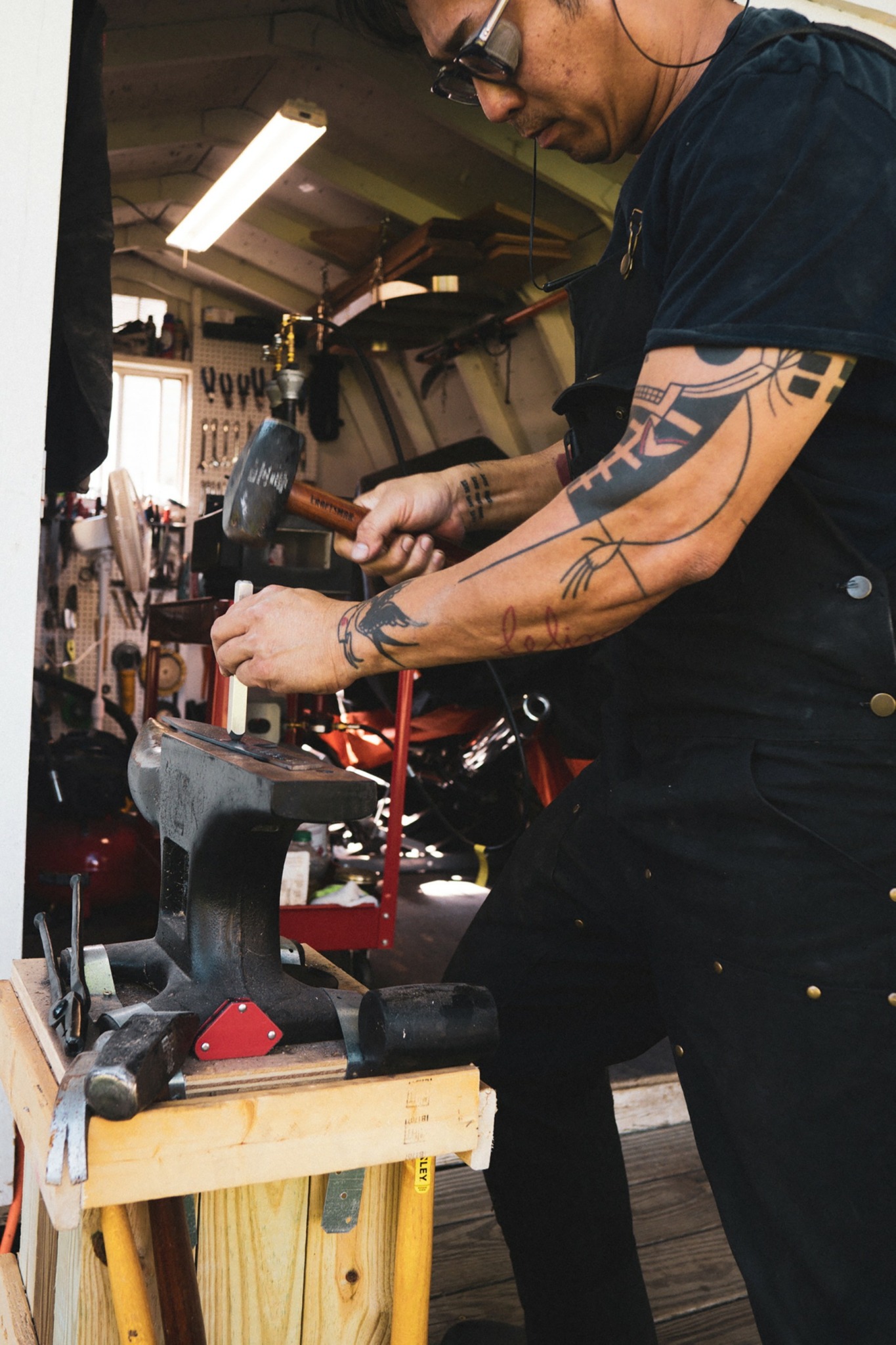We caught up with the brilliant and insightful Vu Nguyen a few weeks ago and have shared our conversation below.
Vu, thanks for taking the time to share your stories with us today If you could go back in time do you wish you had started your creative career sooner or later?
Ive gone back and forth on this question — do I wish I’d started my creative career sooner or later? The short answer is: sooner would’ve been nice, but I don’t regret the timing.
If I’d discovered design or craft earlier, I would’ve lacked the story that makes Dustworks what it is today. My knives aren’t just objects; they carry weight because of the life I lived before I started making them. Years in restaurants, years in business, years in communities where people either cheered me on or watched me fail — those all gave me a kind of authority and humanity that I think shows up in my work.
I didn’t even know what industrial design was when I was in college. I thought architecture was cool but felt way out of my league, so I stuck with sociology and architectural history. By my third year at UVA, though, I was skipping the academic track in my head and diving into cookbooks, throwing dinner parties, and basically living like a line cook before I was one. That was when I decided food was the path. I graduated in 1997 because, well, I’d already put in the years — but the diploma was more of a formality than a launchpad.
Opening two restaurants was huge for me. It was my dream, I achieved it, and both eventually closed. That was humiliating, especially with the debt I had to crawl out from under, but I also built a positive reputation in town. People knew I cared, that I tried, that I cooked with heart. When the taco shop asked me to help them open, it gave me confidence that I still had value. That kind of community support taught me resiliency.
Later, Blanc Creatives was like a crash course in the craft world. I walked in with zero experience and learned everything from how to move metal to how to tell the story of a handmade object. I got a front row seat to branding, trade shows, customer relationships, international sales, collaborations — all of it. I also realized how important it is to say no. Not every “opportunity” is good for you. Wholesale, certain commissions — they can look like smart revenue streams but end up draining the joy and turning your craft into someone else’s project. I decided Dustworks would be different: it’s personal, and I’m protective of that.
If I had delayed longer, I think it would’ve cost me my health and my happiness. The restaurant years already had me running on poor sleep, stress, and bad habits, and I could see how staying in that world too long would’ve hardened me. Instead, now there’s a serenity to my days. My studio is literally in my backyard shed, so I don’t pay rent or commute, and I don’t pull all-nighters. I wake up excited about what I get to make, not dreading it. When I tell my story at shows, it feels authentic and whole, not like I’m pretending to be someone I’m not.
Do I regret anything? Not really. I do wish I’d had the wherewithal to understand the value of residencies, grants, and classes a little earlier when I first started Dustworks. At the time, I was proud to be self-taught, an outsider figuring it out. In hindsight, those opportunities could’ve accelerated my work and expanded my perspective. But it’s not too late. I’m pursuing them now — teaching, taking classes, attending retreats, developing work for galleries.
So, sooner or later? Sooner would’ve been nice. But later gave me the scars, the skills, the stories, and the perspective that fuel my work now. I wouldn’t trade that. If there’s one takeaway from my journey, it’s this: there isn’t one perfect time to start. Starting “too soon” or “too late” doesn’t really exist. What matters is showing up fully when you’re ready — scars, lessons, and all — and letting those experiences fuel your craft rather than haunt it.
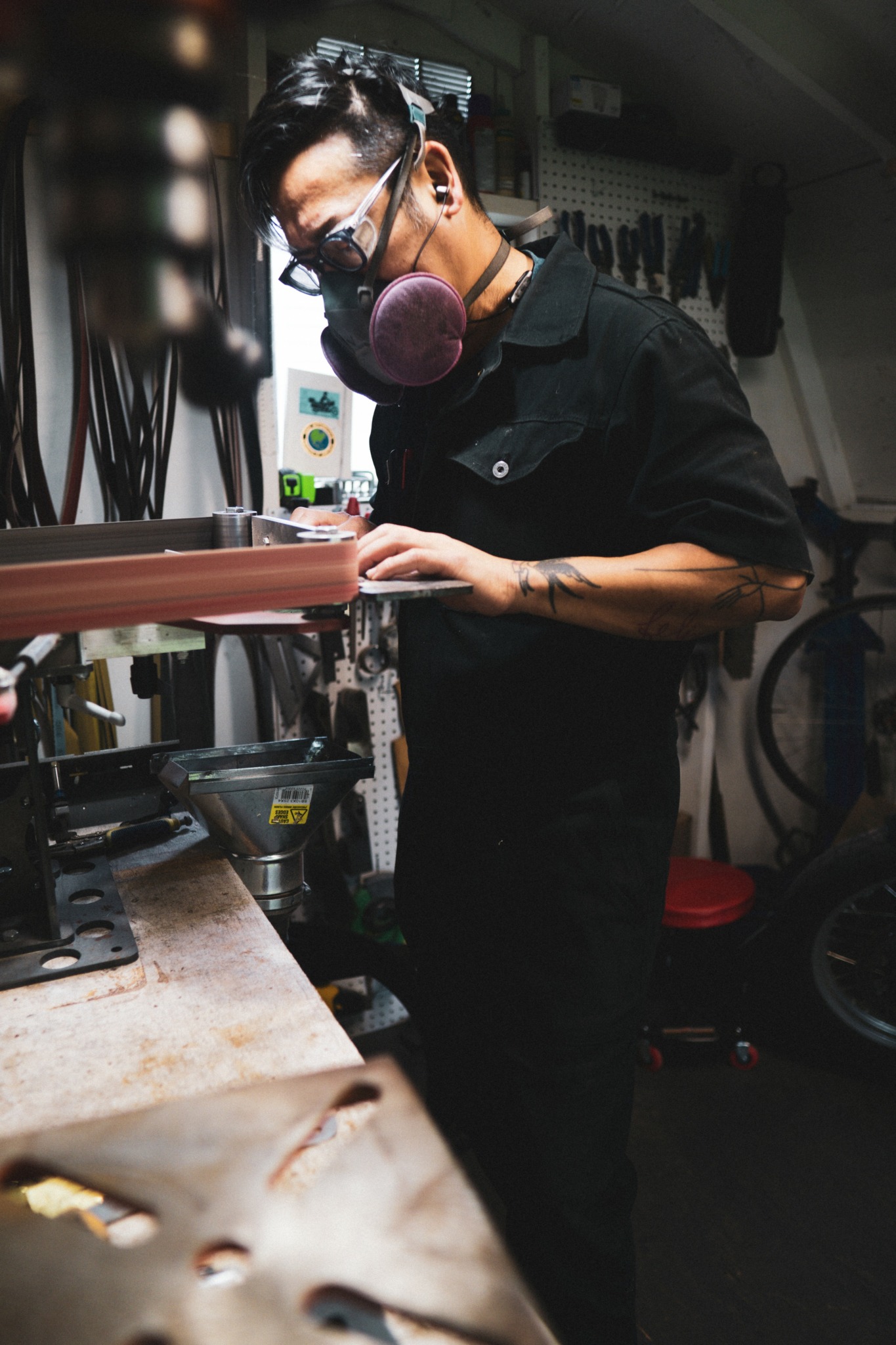
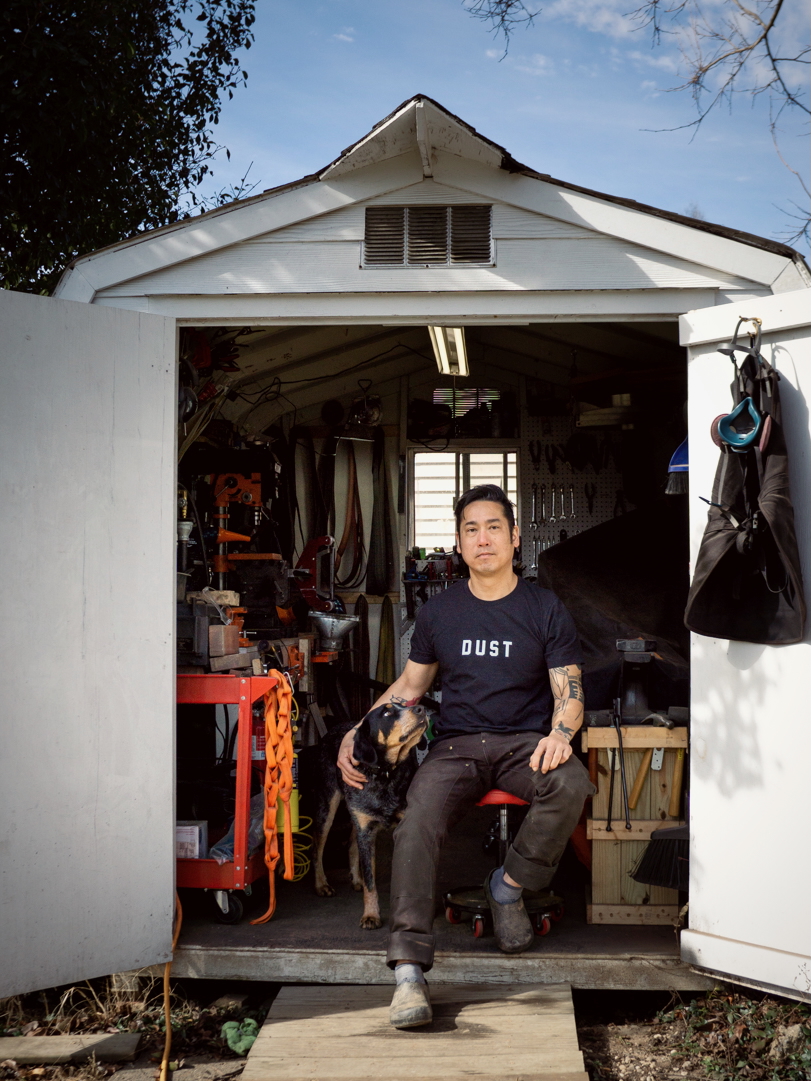
Great, appreciate you sharing that with us. Before we ask you to share more of your insights, can you take a moment to introduce yourself and how you got to where you are today to our readers.
I didn’t take a straight line into this work — The Dustworks grew out of years of experiences that, at first, didn’t seem connected but eventually wove together into something that feels inevitable. My earliest professional life was in kitchens. I trained as a chef and eventually owned and ran my own restaurants. That period taught me more than just how to cook. It showed me how tools shape our daily lives. In a restaurant kitchen, you quickly learn which things you can rely on and which ones fail you. A knife that throws your wrist out of alignment, a pan that warps under heat, a utensil that feels clumsy in the hand — those small frustrations accumulate into stress and inefficiency. On the other hand, when you find tools that truly work with you, they become almost invisible, letting you focus on the food, the rhythm, and the joy of cooking.
After years in that environment, I stepped away from restaurants and went to work at a cookware company in Charlottesville. For six years, I immersed myself in product design and manufacturing. I was no longer just using tools — I was learning how they’re made, what goes into materials and finishes, and how design decisions ripple outward into someone’s experience in the kitchen. That time gave me a foundation in precision, durability, and the realities of how objects are produced at scale.
The Dustworks was born out of the desire to bring those two worlds together. I wanted to make tools that carried the weight of lived culinary experience while also honoring the discipline of thoughtful design. The work I do now is deeply hands-on: I design and craft culinary tools — pieces that live somewhere between art object and functional workhorse. They’re made to last a lifetime, to patina beautifully, and to hold meaning for the person who uses them.
What kinds of problems do I solve? Some of them are subtle. Many of the tools on the market are designed either with pure efficiency in mind — stripped down, interchangeable, mass-produced — or they’re designed as showpieces that look beautiful on a shelf but don’t stand up to daily use. The Dustworks exists in the space between. My work solves the problem of “tools that don’t matter.” I make things that matter. A handle shaped to fit the hand, a surface that responds over years of cooking, an object that feels like an extension of yourself rather than something disposable.
What sets The Dustworks apart is perspective. I’m not a designer who later discovered food, and I’m not a chef who later learned how to work with materials. I’ve lived fully in both worlds, and that dual fluency lets me approach toolmaking differently. Every design decision I make comes from both memory and testing — I know what it feels like to cook twelve hours a day, and I know how different alloys behave over time. That’s not theoretical knowledge; it’s hard-earned. It’s also what allows me to strip away the unnecessary and focus on the essentials. Dustworks isn’t about reinventing the wheel — it’s about refining the wheel so that it carries you further with less friction.
I’m most proud of the fact that The Dustworks is entirely personal. Nothing about this work is outsourced or impersonal. Every design passes through my hands, every object is made with intention. There’s no separation between me and the finished piece. I think that matters in a world where so much of what we own feels distant, produced by invisible systems we don’t understand. When someone holds a Dustworks piece, I want them to feel that direct connection: one person made this, with care, for you to use in your kitchen.
What I want people to know about The Dustworks — whether they’re clients, followers, or simply curious — is that this work is about more than products. It’s about cultivating a relationship with the objects we use every day. Cooking is one of the oldest, most universal human activities. The tools we use for it should reflect that gravity. They should support creativity, nourishment, and presence. They should remind us that daily rituals — chopping vegetables, stirring a pot, plating a meal — can be grounding and even joyful.
In that sense, The Dustworks isn’t competing in a crowded consumer marketplace. It’s standing a little apart, offering something slower, more considered, and more enduring. I don’t want my work to be something you replace in five years. I want it to be something you pass down. I want it to gather memories along with patina — to carry forward the meals, the conversations, the care that surround it.
At the heart of it, The Dustworks is just me trying to make honest objects that honor the act of cooking. It’s my way of giving back to a craft that has given me so much, both in the kitchen and in life.
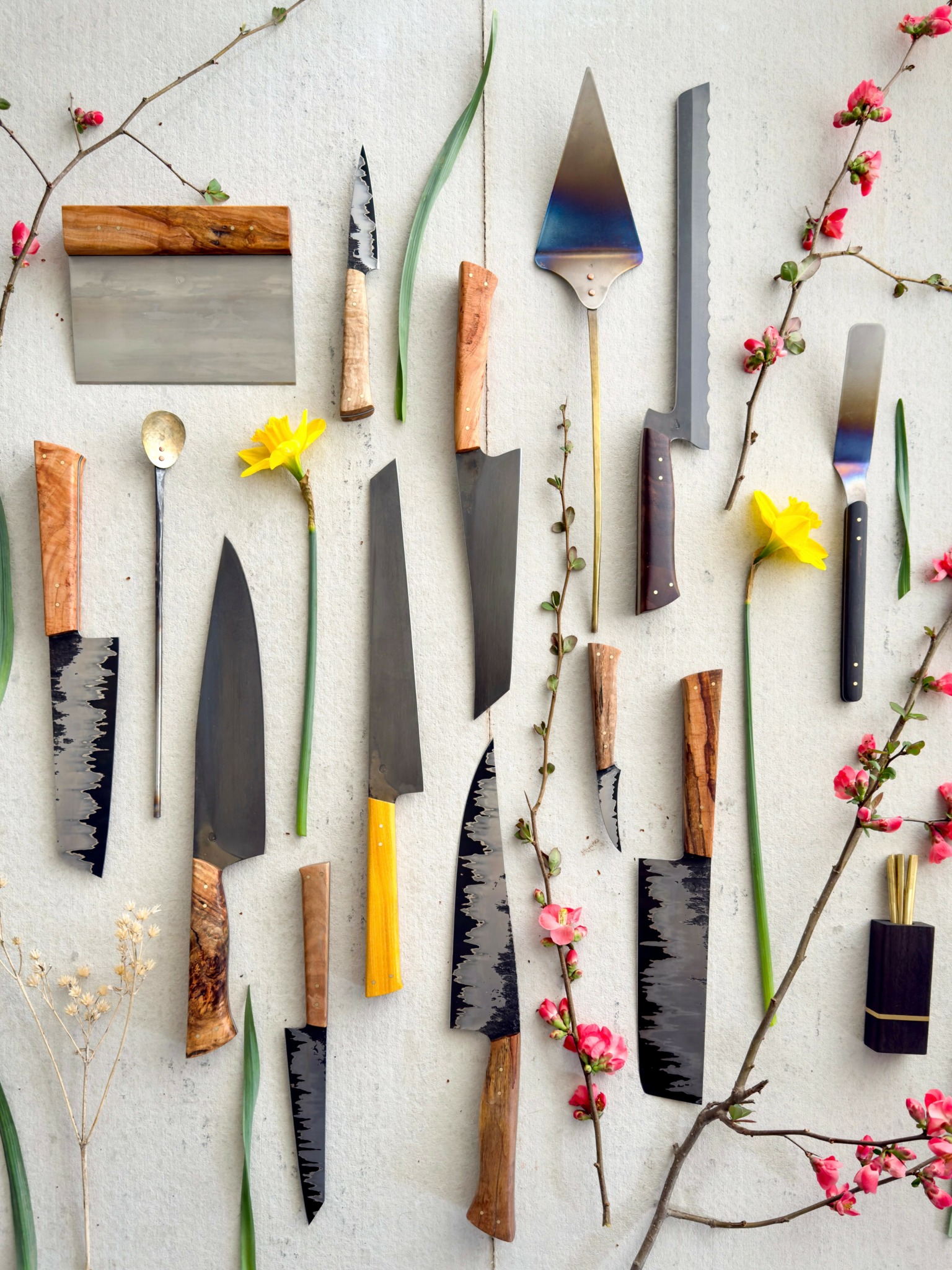
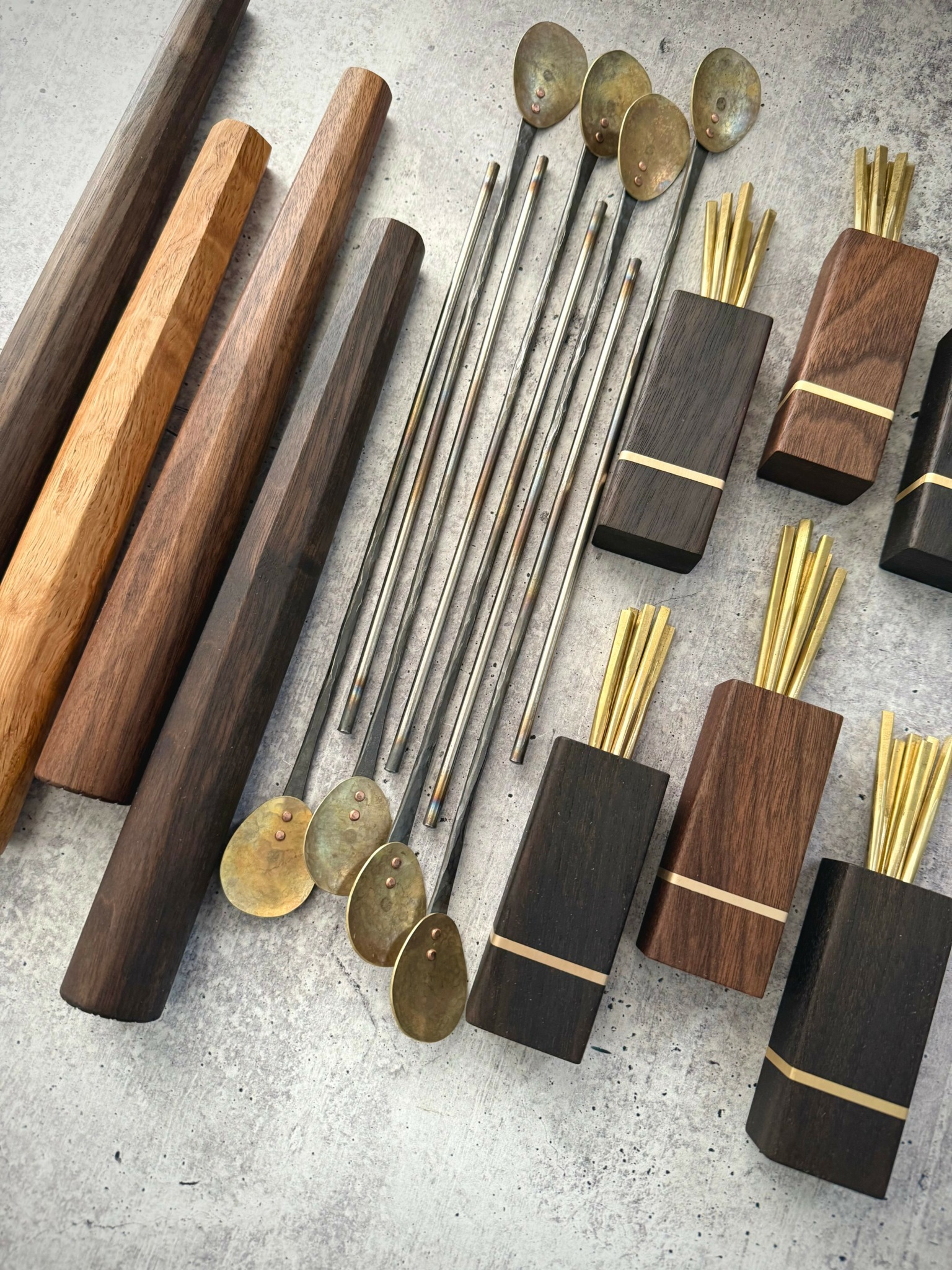
For you, what’s the most rewarding aspect of being a creative?
The most rewarding aspect of being a creative is the ability to brighten someone’s day through the work I make. There’s a profound satisfaction in creating objects that are deeply meaningful to me, knowing that they also resonate with others. When someone connects with a piece so strongly that they’re excited to bring it into their own life, it’s a powerful affirmation of the value and intention behind my work.
Equally rewarding are the human connections that come through the work — the stories people share about their lives, their kitchens, and their experiences. Some tell me they’re building a new kitchen and want quality tools to replace their pedestrian ones, elevating both their cooking and their daily ritual. Others share memories of tools handed down through generations, or connect over shared experiences in professional kitchens. Many seek advice about how to start their own journey in the craft. Each story reminds me that my work is part of a larger continuum — that it can carry memory, tradition, and inspiration, and foster connection across different lives and experiences.
It goes beyond simply making something functional or beautiful — it’s about creating experiences and moments of joy. When my personal vision intersects with someone else’s life in a meaningful way, whether through a purchase, a shared story, or guidance on a craft, it’s incredibly fulfilling. These connections are a reminder that art and craft aren’t just about objects; they’re about shared humanity, memory, and the joy of bringing thoughtfulness and care into everyday life.
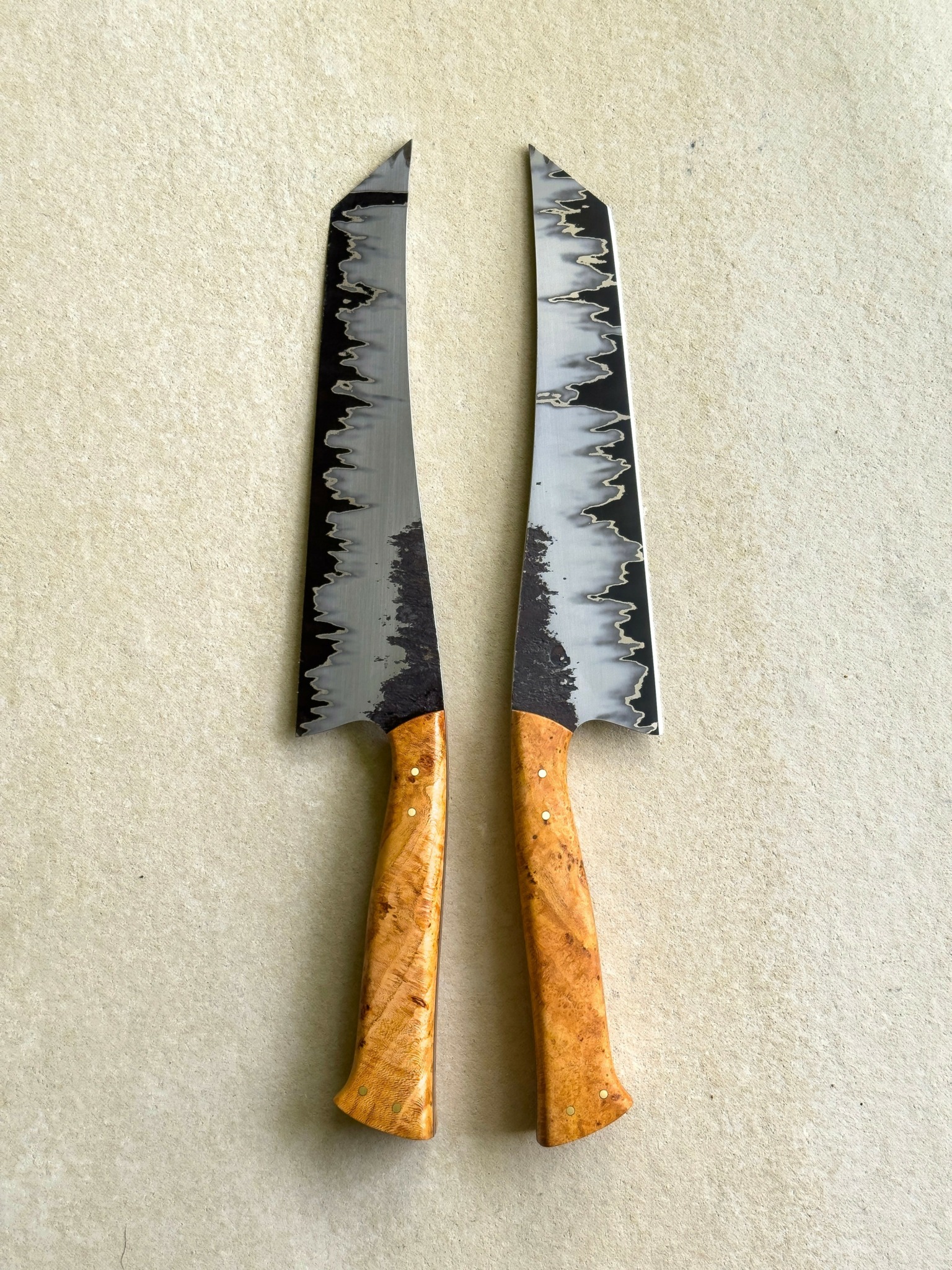
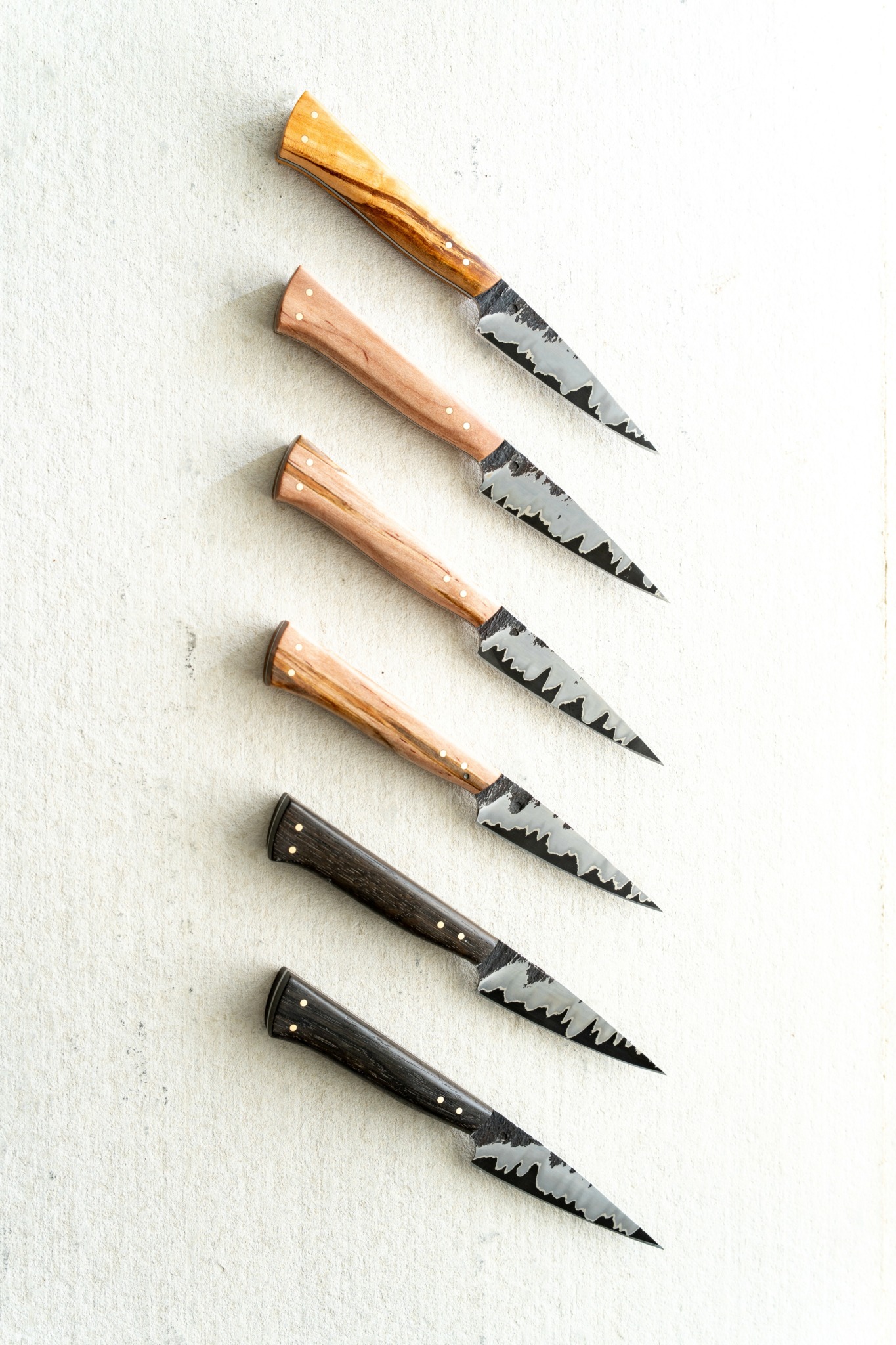
Have any books or other resources had a big impact on you?
Two books have had a significant impact on how I approach both management and my own craft: Shop Class as Soulcraft by Matthew Crawford and Setting the Table by Danny Meyer. Both, in different ways, emphasize the importance of striving to be the best version of yourself and how that pursuit of excellence naturally shows up in your work.
Crawford’s Shop Class as Soulcraft highlights the dignity and fulfillment that comes from working with your hands — from taking responsibility for a tangible process and seeing the results of your effort. It reinforced for me that craftsmanship isn’t just about making something functional; it’s about cultivating care, precision, and attention in every detail. That philosophy directly informs Dustworks. Every tool I make carries intention, honed skill, and a commitment to quality because I’ve seen how deeply that care resonates with those who use the work.
Danny Meyer’s Setting the Table, meanwhile, emphasizes the human side of business — the importance of hospitality, empathy, and creating experiences that prioritize people. Excellence isn’t just technical; it’s relational. The attention you give to service, communication, and understanding someone else’s needs transforms the work itself. In my practice, this manifests in listening closely to the stories and needs of the people who interact with my tools — whether they’re building a new kitchen, preserving a family heirloom, or seeking guidance to start in the craft themselves.
Alongside those books, the podcast 99% Invisible by Roman Mars has been an ongoing influence, especially in shaping my design sensibilities. The show explores the hidden, often overlooked aspects of design — the small, invisible decisions or unintended consequences that shape how we experience the built world. That way of seeing — of paying attention to the unseen or non-obvious stories behind design — has become a guiding principle in my own work. I try to apply that lens in my design process.
Together, these influences have shaped a philosophy that blends technical excellence, human connection, and attentiveness to detail. My craft is not just about making objects that perform beautifully; it’s about making tools that carry meaning, facilitate joy, and create moments of connection. I view The Dustworks not only as a place for careful design and making but as a reflection of the values I believe make work worth doing: integrity, care, and the desire to leave a lasting, positive impact through both the objects I create and the relationships I build.
Contact Info:
- Website: https://thedustworks.com
- Instagram: https://www.instagram.com/the_dustworks/
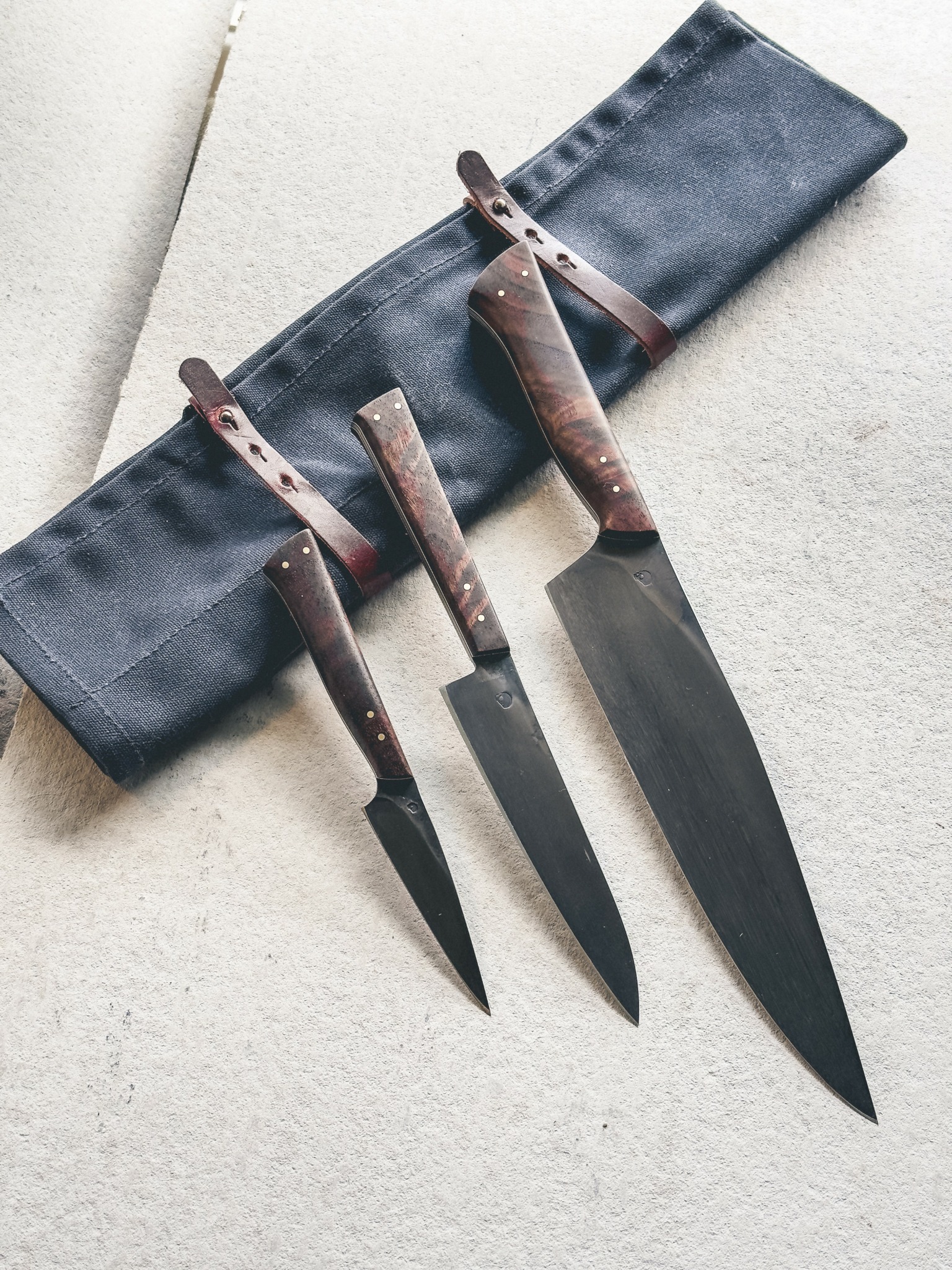
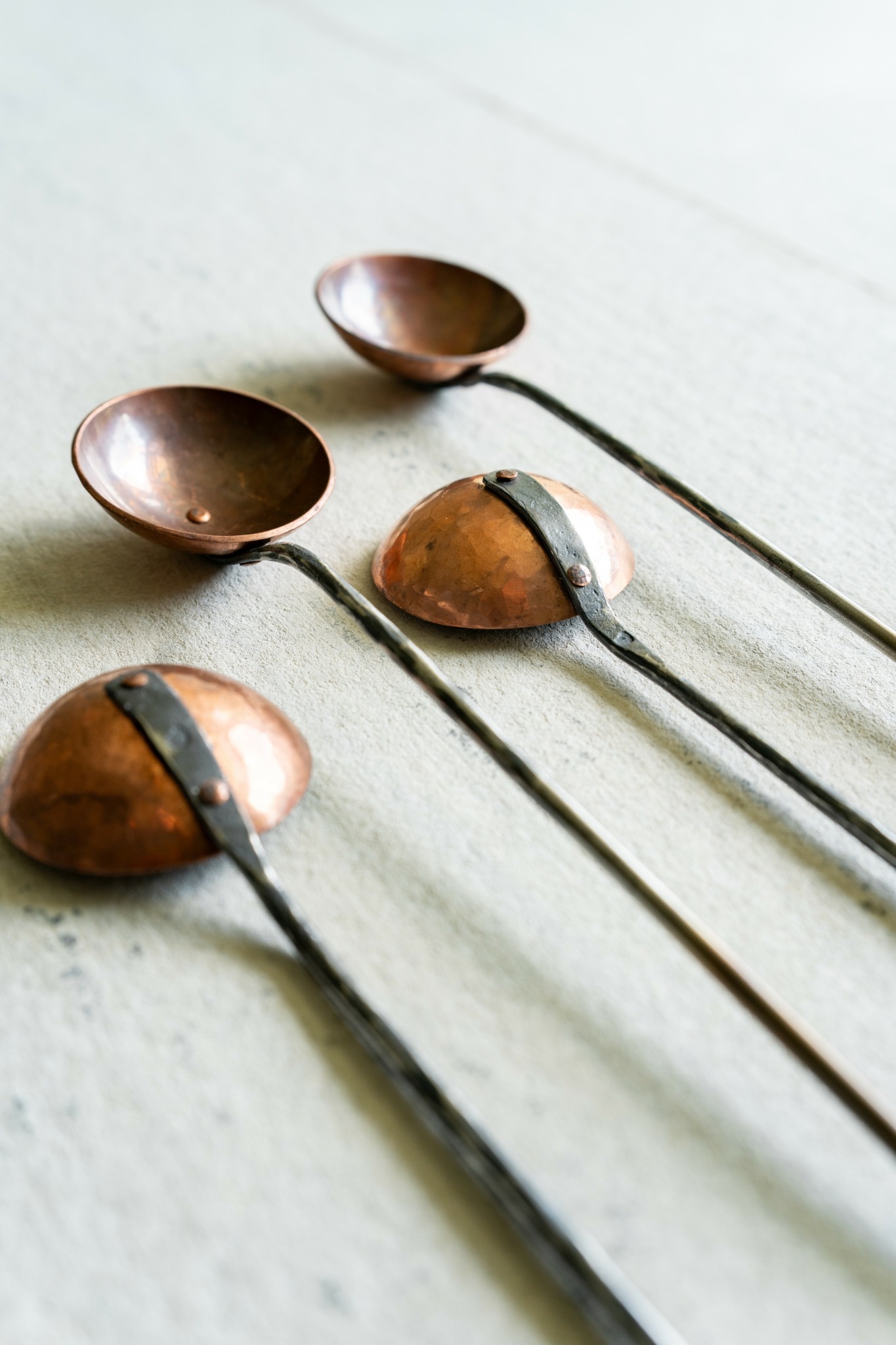
Image Credits
Vu Nguyen


